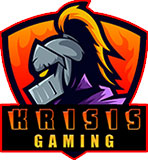Group C In EURO C: A Three-Way Contest For Second Place
The tournament sets off through the EURO Draw. The Euro Draw holds great importance, not just for football officials and participating teams, but also for fans and the media. It creates a vibrant atmosphere filled with anticipation, speculation, and enthusiasm. Fans eagerly await the draw, engaging in discussions about potential matchups and carefully analyzing the group compositions. The event generates a buzz that resonates throughout the football community, adding to the excitement surrounding the upcoming tournament.

As said, the draw determined the groups for the teams and these groups have huge effects to the performance and results of the tournament. This year, the groups have been divided as follows:
- Group A: Germany, Scotland, Hungary, Switzerland
- Group B: Spain, Croatia, Italy, Albania
- Group C: Slovenia, Denmark, Serbia, England
- Group D: Netherlands, Austria, France, Play-off winner A
- Group E: Belgium, Slovakia, Romania, Play-off winner B
- Group F: Türkiye, Portugal, Czechia, Play-off winner C
EURO Group C
This year’s Group C consists of: Slovenia, Denmark, Serbia, England. Last EURO 2020, England gave the champions, Italy, a difficult time securing the title. They played the championship match against Italy but unfortunately fell short.
Analyzing EURO 2024 Group C Teams
In Group C of the European Championship, England, Denmark, Slovenia, and Serbia have been drawn together. Here are the strengths and characteristics of each team:
- England: England, led by manager Gareth Southgate, is considered one of the strong teams in the group. They have a talented squad with a good mix of experienced players and emerging talents. England’s strengths lie in their solid defense, creative midfield, and potent attacking options. They will aim to win the group and continue their quest for European success.
- Denmark: Denmark is a resilient and competitive team that will be seeking revenge against England after their Euro 2020 semi-final defeat. Managed by Kasper Hjulmand, Denmark boasts a well-organized defense and a balanced midfield. They possess the ability to create scoring opportunities and are known for their team spirit and work ethic.
- Slovenia: Slovenia is considered a less challenging opponent on paper, but they can still present a challenge. They have a functional playing style and rely on tactical discipline. Although not as strong as some other teams in the group, they can be difficult to break down and have the potential to cause upsets.
- Serbia: Serbia has a squad packed with attacking talent, but they have historically struggled to perform at their best as a collective unit. Managed by Dragan Stojkovic, Serbia will be aiming to compete for the second spot in the group. They will rely on their attacking prowess, with striker Aleksandar Mitrovic being a key player, although his move to Saudi Arabia may have affected his form.
In Conclusion
Considering the group dynamics, the outcome may depend on the performances in matches between Denmark, England, and Slovenia. If England face difficulties against Serbia or Denmark and need points, their final match against Slovenia could be seen as an opportunity to secure a positive result.

